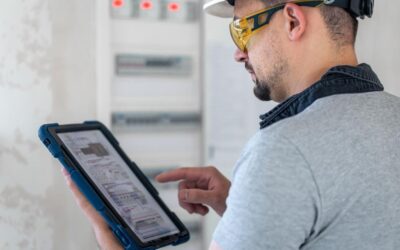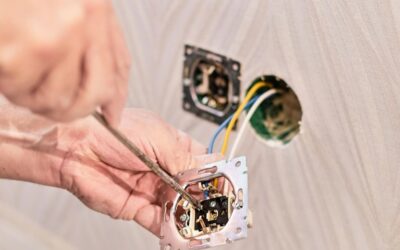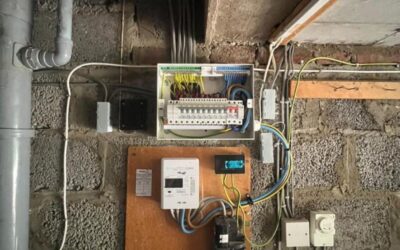In the heart of Lincolnshire, where rolling countryside meets bustling market towns, the shift towards sustainable living is gaining momentum. As electric vehicles (EVs) become a staple on our roads, the need for reliable home and workplace charging solutions has never been more apparent. At Matson Electrical Services, we’ve witnessed this transformation firsthand, working across areas like Lincoln, Sleaford, Spalding, and Woodhall Spa to integrate EV chargers seamlessly into everyday life. This article explores the practical aspects of EV charger installations, drawing from our experiences in the field, while highlighting how these systems contribute to safer, greener communities without delving into promotional hype.
The surge in EV adoption in Lincolnshire mirrors national trends, driven by environmental concerns and advancements in automotive technology. According to recent data from the UK government, EV registrations have skyrocketed, with over a million plug-in vehicles on British roads as of mid-2025. In our rural and semi-urban settings, where public charging infrastructure can be sparse, having a dedicated charger at home or work isn’t just convenient—it’s essential. We’ve seen families in Skegness and Grimsby opting for these setups to avoid long queues at service stations, ensuring their vehicles are ready for daily commutes or weekend escapes to the Lincolnshire Wolds.
From a technical standpoint, EV chargers come in various types, each suited to different needs. Level 1 chargers, which use a standard household socket, offer a basic solution but charge slowly—typically adding about 4-5 miles of range per hour. For most Lincolnshire residents, however, Level 2 chargers are the go-to option. These wall-mounted units operate on a 240-volt circuit, delivering up to 25-30 miles of range per hour, making them ideal for overnight charging. In our installations, we often recommend smart chargers equipped with app connectivity, allowing users to schedule sessions during off-peak hours when electricity tariffs are lower. This not only optimizes energy use but also aligns with Lincolnshire’s push towards renewable energy sources, such as local wind farms contributing to the grid.
Safety remains paramount in any electrical work, and EV charger setups are no exception. As NICEIC-approved contractors with OZEV accreditation, our team adheres to stringent UK standards, ensuring installations comply with the latest IET Wiring Regulations (BS 7671). This involves assessing the property’s existing electrical system—checking the consumer unit’s capacity and earthing arrangements—to prevent overloads. In older Lincolnshire homes, like those in Boston or Woodhall Spa with traditional fuse boards, we sometimes encounter outdated wiring that requires upgrades. For instance, integrating a charger might necessitate a dedicated circuit or even a partial rewiring to handle the increased load safely. We’ve handled cases where installing surge protection devices alongside the charger has safeguarded sensitive EV batteries from voltage spikes, common during stormy weather in our region.
One aspect we often discuss with clients is the integration of EV chargers with solar panels, a growing trend in eco-conscious Lincolnshire households. By pairing a charger with photovoltaic systems, excess solar energy can be diverted to vehicle charging, reducing reliance on the grid and lowering carbon footprints. In agricultural settings around Spalding, where farms are adopting electric machinery, we’ve installed chargers that support three-phase power for faster commercial charging. These setups not only enhance operational efficiency but also qualify for government grants under schemes like the Workplace Charging Scheme (WCS), which can offset installation costs.
Beyond the technicalities, the real value lies in how EV chargers enhance daily routines. Take a typical family in Lincoln: With a home charger, mornings become less rushed, as the car is fully powered without the need for detours to public stations. For businesses in Grimsby or Skegness, offering on-site charging attracts eco-minded employees and customers, fostering a forward-thinking image. We’ve observed that proper installation minimizes disruptions—our process typically involves a site survey, followed by a neat, weatherproof mounting that blends with the property’s aesthetics, whether it’s a gravel driveway or a garage wall.
Maintenance is another key consideration. Once installed, EV chargers require periodic checks to ensure optimal performance. We recommend annual inspections, similar to those for other electrical systems, to verify connections, test for faults, and update software if applicable. In Lincolnshire’s variable climate, with its mix of coastal humidity and inland frosts, protective measures like IP-rated enclosures prevent moisture ingress, extending the charger’s lifespan.
Looking ahead, as Lincolnshire continues to embrace electrification—with initiatives like expanded bus routes in Lincoln using electric fleets—the role of professional installations will only grow. Sharing knowledge from our fieldwork, we emphasize education: Understanding your vehicle’s compatibility, such as with Type 2 connectors standard in most EVs, helps in choosing the right setup. Resources from bodies like the Electric Vehicle Association provide further guidance, complementing hands-on expertise.
In summary, the integration of EV chargers in Lincolnshire represents a step towards sustainable mobility, blending innovation with practical safety. Through careful planning and execution, these systems not only power vehicles but also support broader environmental goals. If you’re navigating this transition, focusing on compliance and efficiency ensures a smooth journey. At Matson Electrical Services, our work in areas from Sleaford to Boston underscores the importance of tailored, reliable solutions in building a greener future.



